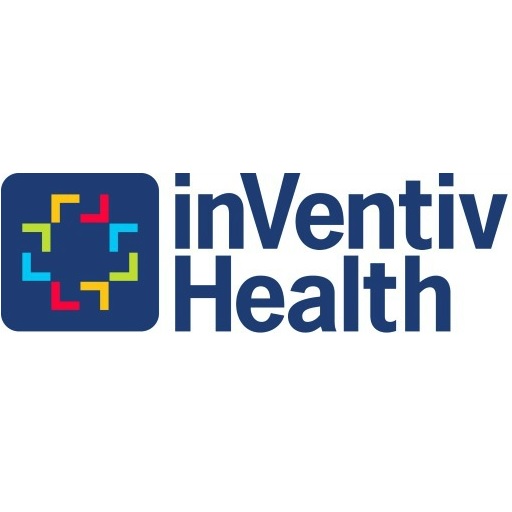inVentiv Health Communications 11 Oct 2016 // 12:48PM GMT

Despite reputational polls indicating pharmaceuticals are currently among the least trusted industries in the country, we are reminded that it could always be worse… we could be in political PR.
Last week, Goldman Sachs warned it’s time for drug makers to stop relying on price increases to grow sales. Facebook learned that people want to sell some blush-inducing services on its new Marketplace. And an old Texan real-estate tycoon taught PR veterans a new trick (to Wells Fargo’s detriment).
Enjoy this edition of The Week That Was: Crises in Communications.
PHARMA PUBLIC ENEMY NO. 1?
In disquieting news, the American public has spoken, and they feel more than irked at the biopharmaceutical industry. According to the Kaiser Family Foundation’s annual health tracking poll, Americans said they believe prescription drugs have made the lives of people in the U.S. worse. Seventy-seven percent of respondents said the cost of medicines are unreasonable. Many believe drug makers should be required to release information about how they set prices. And, while healthcare has not been the formative issue in this Presidential election, half of Americans said they care about how the candidates will address the cost of deductibles as well as prescription drug prices.
OUR TAKE
Okay people, if there was ever a time for a “turnaround plan,” we’ve officially arrived. Americans are getting pelted by negative headlines about drug companies and Congressional hearings are scrutinizing bad actors. This is a bad place to be for an industry that primarily functions for the purpose of improving and extending lives. And if that isn’t making biopharma C-suites shudder, this should: Goldman Sachs analysts recently warned investors to be wary of companies who are reliant on price increases to existing medicines to hit their targets. We don’t care to speculate on the number of manufacturers taking annual to semi-annual price increases on medicines without new innovation, but we can say with certainty that Kaiser’s polls are a warning sign: public tolerance of such practices is waning. For developers with new drugs approaching the market, it is better to price a drug appropriately at launch rather than relying on increases that are 2 – 3x the rate of inflation later.
FACEBOOK DIGITAL BAZAAR… HOW BIZARRE, HOW BIZARRE
Late 90s pop lyrics, anyone? This past Monday, illegal drugs, guns, baby hedgehogs and even sexual services became available on Facebook’s Marketplace… but just for a short while. The new section on Facebook’s mobile app was introduced in the morning, allowing users to buy and sell things. But by the evening, Facebook was apologizing for a “technical issue” which prevented its review system from identifying posts in violation of its commerce policies and community standards. Cue chaos, uproar, and posts like “Thank you Facebook Marketplace for giving me the opportunity to buy babies or guns.” Starting off on the wrong foot? That’s an understatement.
OUR TAKE
Aiming to distinguish itself from its sometimes-shady counterparts like Craigslist, Facebook Marketplace ended up doing exactly the opposite. Facebook had planned to introduce (and re-introduce) Marketplace gradually in its app and desktop versions, but this blunder may cause users to hesitate when it comes to switching over from other sites. Will the company’s quick apology eradicate users’ future hesitation to adopt? Tough to say. Next time a little thing we like to call “communications readiness” might be helpful, as well as a procedure to ensure that such a hiccup doesn’t last half a day, which is more like an eternity when it comes to PR… or the internet.
HOW TO TIP THE SCALES IN YOUR SUIT: TAKE OUT AN AD
The pile on continues. Wells Fargo has faced fallout from investigators, financial analysts, and Presidential candidates as a result of the phony account scandal. But last week, Wells faced a new critic. Wealthy Texan businessman Lacy Harber took out a series of full page newspaper ads against the bank saying, “It’s time for corporate greed to end. Enough is enough.” So was it moral righteousness that led Harber to run the ads in The New York Times and The Charlotte Observer? Um, no. Harber has held a grudge against the bank for losses on a series of stock trades in 2015, which he’s still seeking to settle.
OUR TAKE
In the healthcare industry, “bad drug” ads are seemingly ubiquitous on daytime television, which are placed by legal firms to recruit additional plaintiffs for class action suits. But, taking out a full-page ad in the NYT is a new one. Such ads are traditionally used as a tool for “reputationally challenged” companies to make an apology or explanation. But, Harber turned the tactic on its head to go on the legal offensive. A new spin on an old tactic…and yet another setback for Wells Fargo.
Did you miss previous installments of The Week That Was: Crises in Communications? Fret not, you can find more here.
By: Meg Alexander, Inventiv Health PR Group
To speak with one of the Issues Management experts at inVentiv Health PR Group, please email [email protected].
This post originally appeared on inVentiv Health Public Relations Group’s blog, VitalSigns.


































.jpg)












